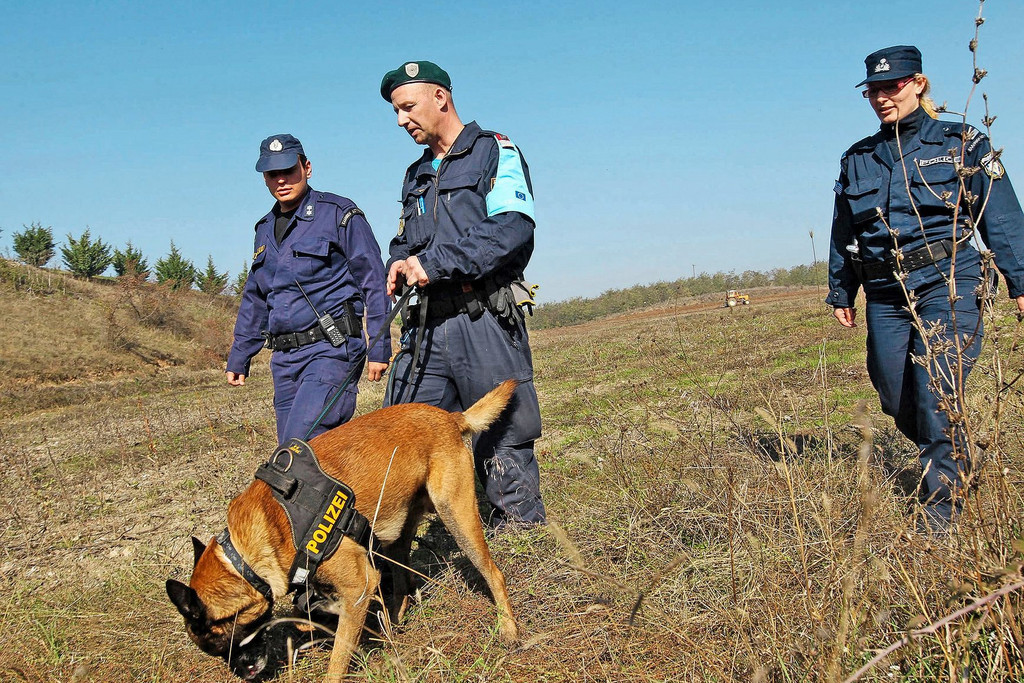Swiss agricultural policy is a perennial political issue. Four popular initiatives are now adding further spice to the debate – the “horned cow initiative”, “the fair food initiative”, the popular request for food sovereignty and the food security initiative.
Food security will be the first to be put to referendum. The Swiss Farmers Union called for the strengthening of food supply from domestic production through an initiative. The Federal Council was supportive of the fundamental issue but rejected the initiative because there is a very high level of food security in Switzerland and the authors’ concerns are already largely covered by the current constitution.
The proposal also met with much sympathy in Parliament. The National Council even initially approved the initiative. However, while the Council of States took the matter seriously, it rejected the initiative and presented its own counterproposal. This was eventually approved by Parliament by a large majority with cross-party support and is now being put to the vote at referendum as the only bill. The Swiss Farmers Union was also in agreement and withdrew its initiative in favour of the counterproposal.
Safeguarding farmland
In the view of the majority of MPs, the counterproposal’s wording is clearer and more precise, leaving less room for interpretation than the initiative. If the Swiss people approve the bill, the federal constitution will in future include a comprehensive integral plan for food security: securing the bases of production, in particular farmland, resource-efficient food production adapted to the location, and an agricultural and food sector aligned to the market. Food waste is also to be combatted. The bill additionally incorporates issues from the fair food initiative and the food sovereignty initiative, two plebiscites focusing on socially-aware and eco-friendly agriculture. To some degree, food security is an overlapping element in all three initiatives.
In Parliament, even the counterproposal failed to convince some MPs from the FDP, SP and Green Liberal Party. They argued it offered nothing that was not already in the constitution. These dissenting voices can now take some comfort from the fact that the bill will not result in new agricultural subsidies – at least not directly. That is not the case with the “horned cow initiative”. This popular initiative seeks to ensure that fewer livestock farmers remove the horns of their animals to better protect their dignity. Financial support would be provided as keeping horned animals is expensive. But that is another story.
A large-scale pension reform
The old-age pension 2020 bill will also be put to referendum on 24 September. We dedicated several pages to this matter as the focus article in the May issue of “Swiss Review” owing to the bill’s major importance.
A referendum on the proposal is mandatory because the financing of old-age and survivors’ insurance (AHV) means an increase in VAT, which requires a constitutional amendment. If voters reject the additional funding for AHV, the entire reform of the first and second pillars will fail (AHV and occupational benefits provision). Even though the Swiss people can determine the fate of the entire reform package with the VAT bill, a far-left committee has also called a referendum against the Federal Act on the Reform of Old-Age Pension 2020. The increase in the pension age for women from 64 to 65 years of age is a particular bone of contention for opponents. It was unclear at the time of going to print whether the referendum would take place.
Conservative groups in Parliament also fought against the bill because they oppose the increase in AHV pension which should cover some of the losses in the second pillar resulting from the reduction in the second-pillar conversion rate. The SP resorted to an unorthodox step. In April 2017, the party held a vote amongst its membership – for just the fourth time in its history – on “the most important issue of the legislative period”. An overwhelming 90.6 % of the SP’s members supported the reform.





![[Translate to en:]](/fileadmin/_processed_/d/2/csm_Revue_202204_Huehnerfarm_SH-Reportage_3074_7901ca94df.jpg)



Comments